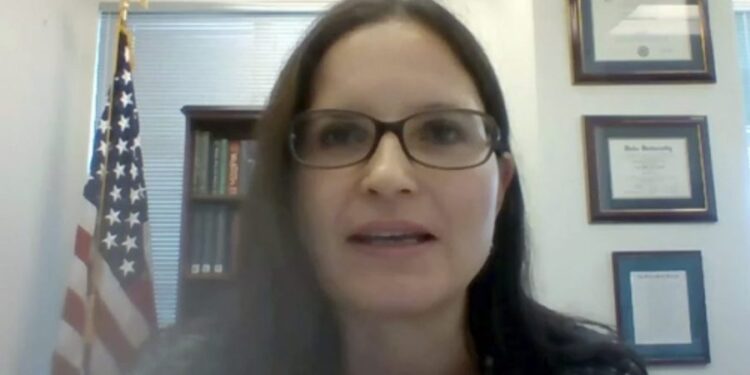
A watchdog group is asking the 11th Circuit Court of Appeals to remove Judge Aileen Cannon from overseeing former President Trump’s classified documents case, arguing she has taken “many efforts to undermine and derail the prosecution of this case.”
The brief from Citizens for Responsibility and Ethics in Washington (CREW) comes as special counsel Jack Smith is appealing a ruling from Cannon that tossed the documents entirely in determining Smith was unlawfully appointed.
The CREW brief asks for the documents case to be reassigned to another jurist in South Florida. Smith did not make that request, but the 11th Circuit could independently determine the rare move is warranted.
“Even before she dismissed this case on novel and insupportable grounds that ignored both statutory authority and Supreme Court precedent, Judge Cannon’s other extraordinary rulings and sluggish administration of the case had provoked well-founded concerns that she might be biased against the Government’s case and unable to manage that case impartially,” CREW wrote in its motion to file a friend of the court brief filed late Tuesday.
The filing also comes on behalf of retired federal judge Nancy Gertner, who previously raised concerns to The Hill over potential bias by Cannon, as well as two ethics attorneys.
A message left at Cannon’s chambers was not immediately returned.
Cannon’s unusual handling of the case has surprised legal observers on both sides of the aisle since its early stages.
She has already had a decision reversed by the 11th Circuit, which determined she erred in appointing a special master to first review the evidence collected in the search of Trump’s Mar-a-Lago estate for items possibly protected by privilege. It was a delay that kept prosecutors from proceeding in the case before charges had even been filed.
Since being randomly assigned to the case once prosecutors charged Trump with violating the Espionage Act and obstruction of justice, Cannon has held lengthy hearings on Trump efforts seen by many legal observers as long-shot legal arguments – including that Smith was not properly appointed as special counsel.
The filing also cites Cannon’s “inexplicable call for jury instructions on a spurious legal defense that would have gutted the Government’s case had it ever gone to trial” after she mulled embracing arguments from Trump on jury instructions even as she failed to account for a trial date in the case.
It also notes “Cannon’s failure over the course of one year to move the case forward in any significant way—until a one-Justice concurrence in the Supreme Court’s presidential-immunity opinion expressed approval of the novel constitutional theory that allowed her to end the case.”
That was a nod to an off-topic footnote from Justice Clarence Thomas.
In a concurring opinion in a case in which Trump asserted he was immune from prosecution, Thomas in a footnote mulled the legality of Smith’s appointment despite the matter not being at issue in the case.
Cannon in July determined that Smith was unlawfully appointed, calling into question 50 years of prior rulings on special counsel regulations.
Smith’s team argued last week that Cannon “deviated from binding Supreme Court precedent, misconstrued the statutes that authorized the Special Counsel’s appointment, and took inadequate account of the longstanding history of Attorney General appointments of special counsels.”
The brief also repeatedly points to the 11th Circuit’s own words in its prior decision shooting down Cannon’s appointment of a special master.
It points to some of Cannon’s earliest comments in the case, noting the “stigma” attached to those facing potential prosecution, and the court’s response.
“This Court’s decision marked the wholesale repudiation of Judge Cannon’s view that former Presidents are entitled to extraordinary protections in criminal investigations. Creating a ‘special’ form of equitable jurisdiction to benefit former presidents, this Court explained, ‘would defy our Nation’s foundational principle that our law applies to all, without regard to numbers, wealth, or rank,’” the brief noted.
The CREW filing predicts that the appeals court will again rule against Cannon and keep Smith on the case.
“If the Court reverses Judge Aileen M. Cannon’s ruling in this matter, it will be the third time in under three years that it has had to do so in a seemingly straightforward case about a former president’s unauthorized possession of government documents,” CREW wrote.
“But citing the mere number and frequency of reversals does not fully capture the problem; for some of Judge Cannon’s rulings have been so unprecedented that affirming them would, in this Court’s words, ‘violate bedrock separation-of-powers limitations.’”







